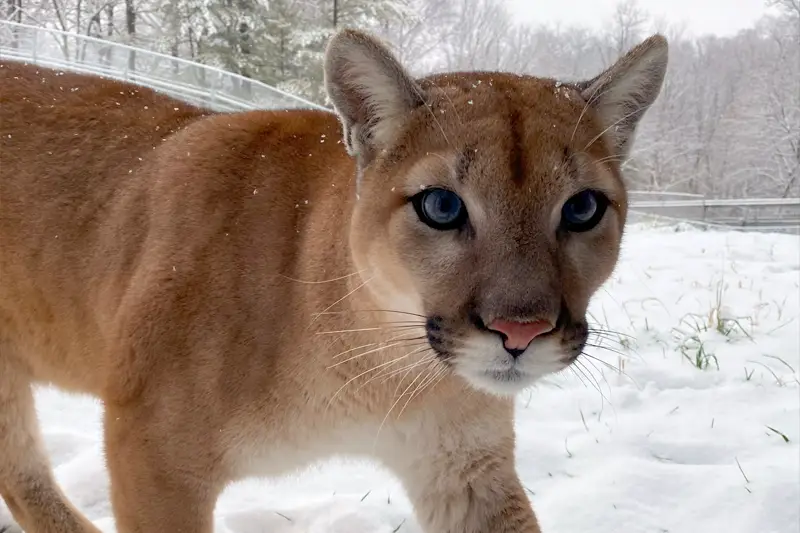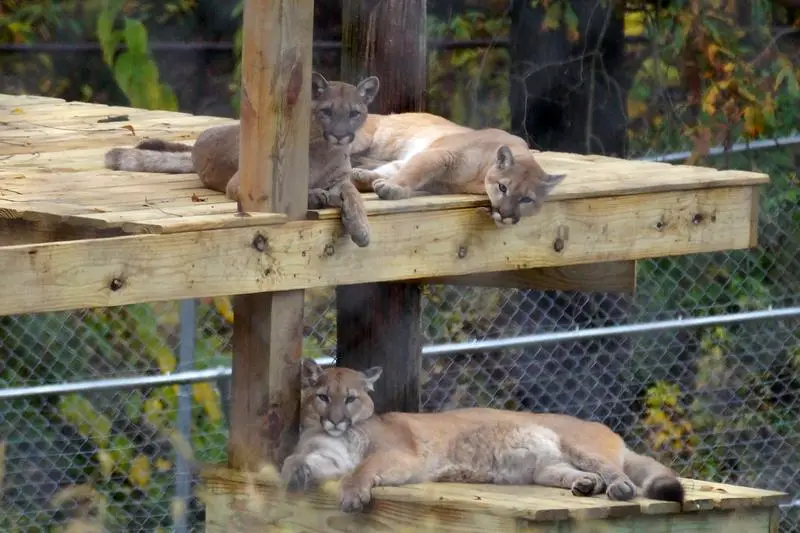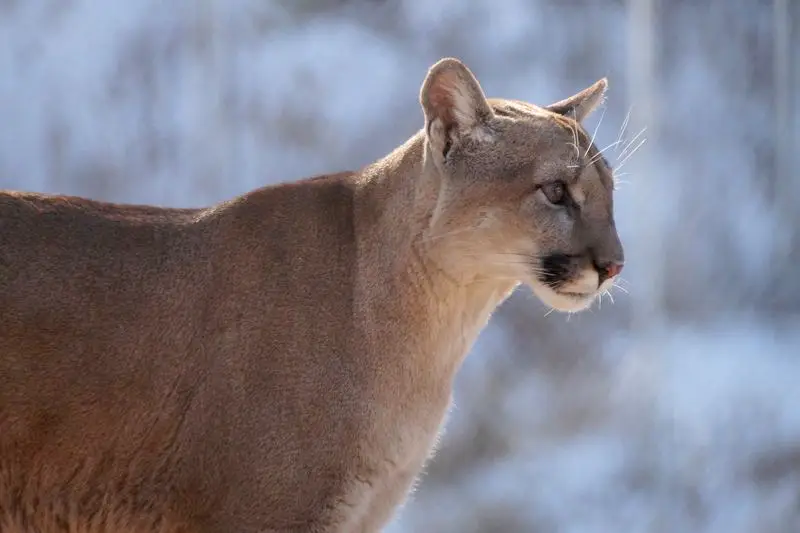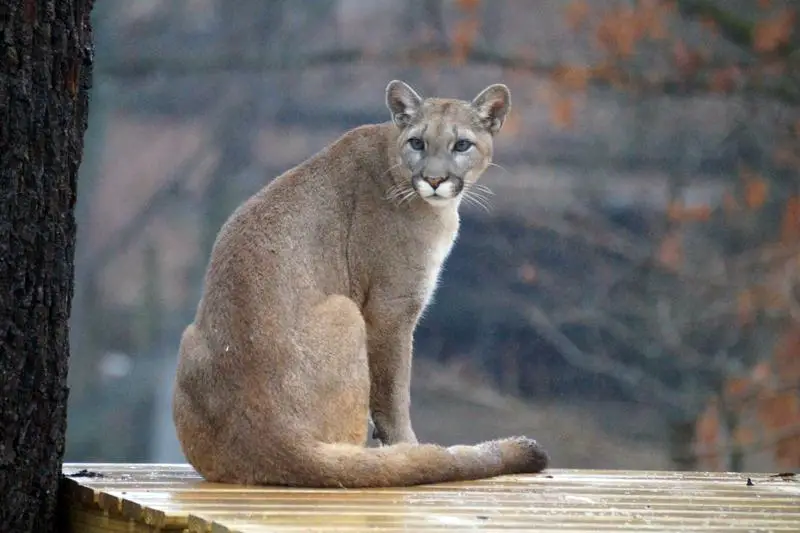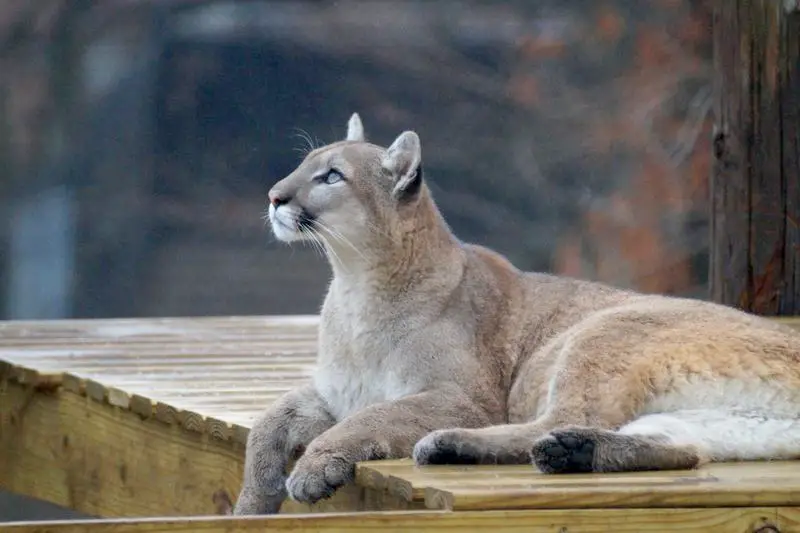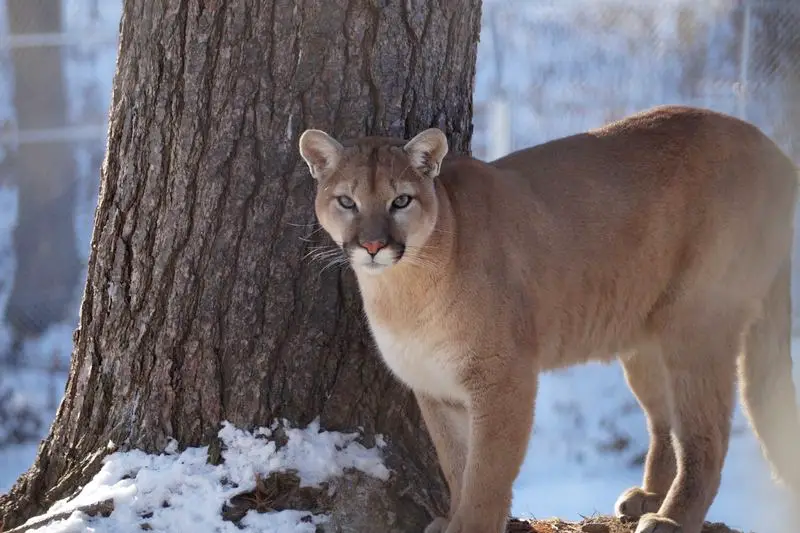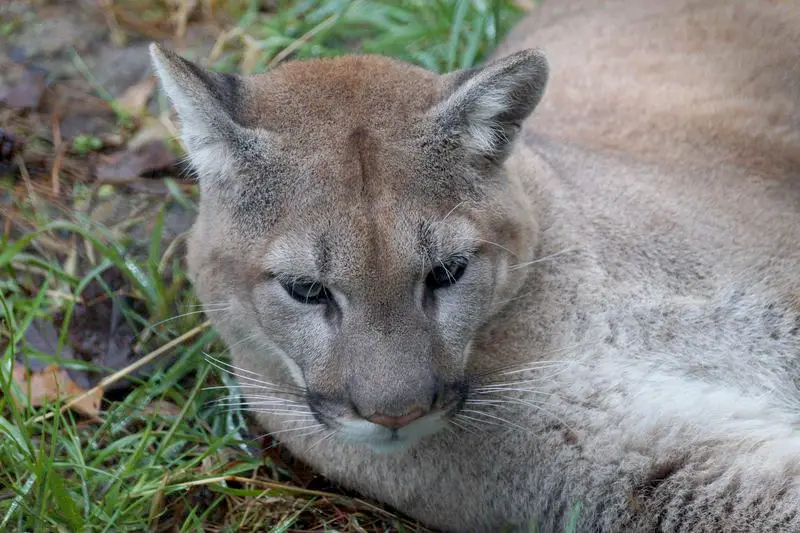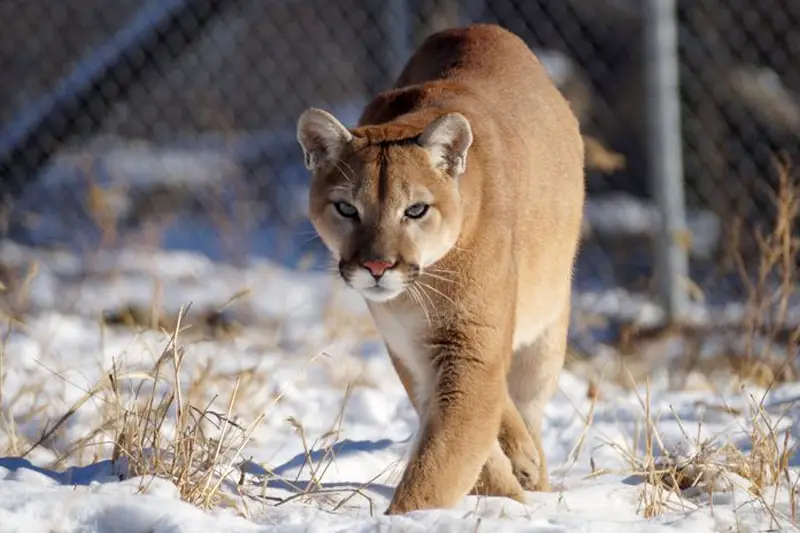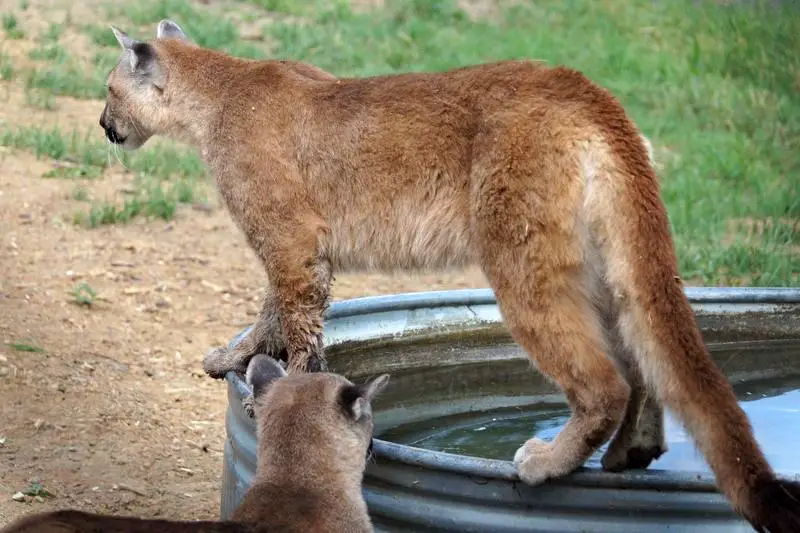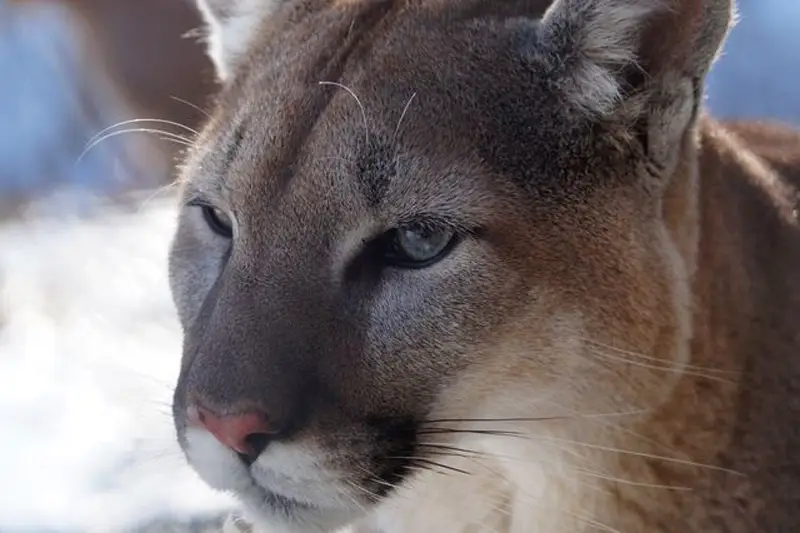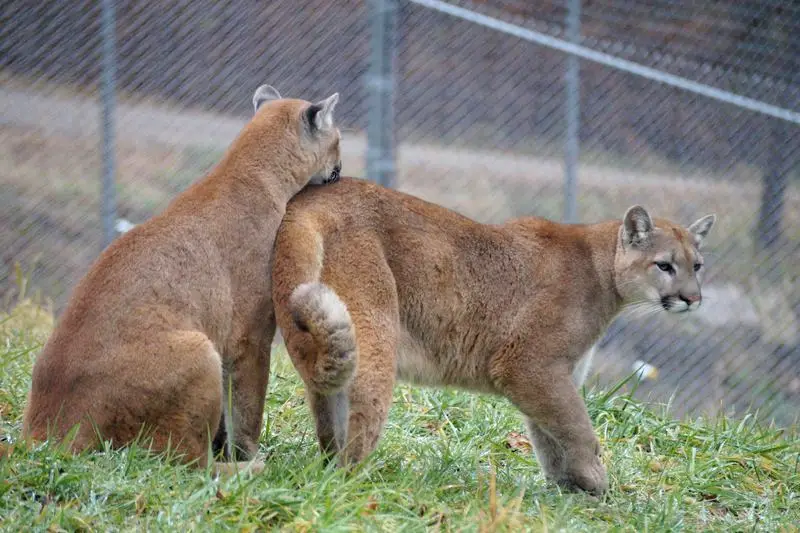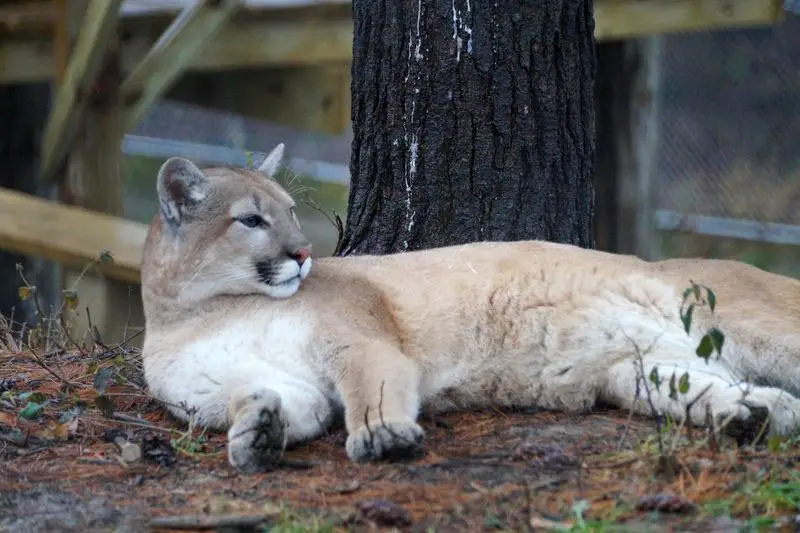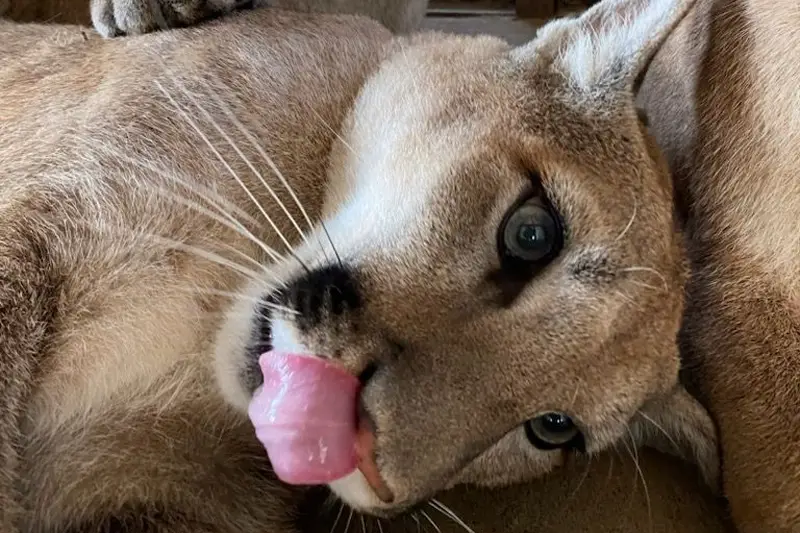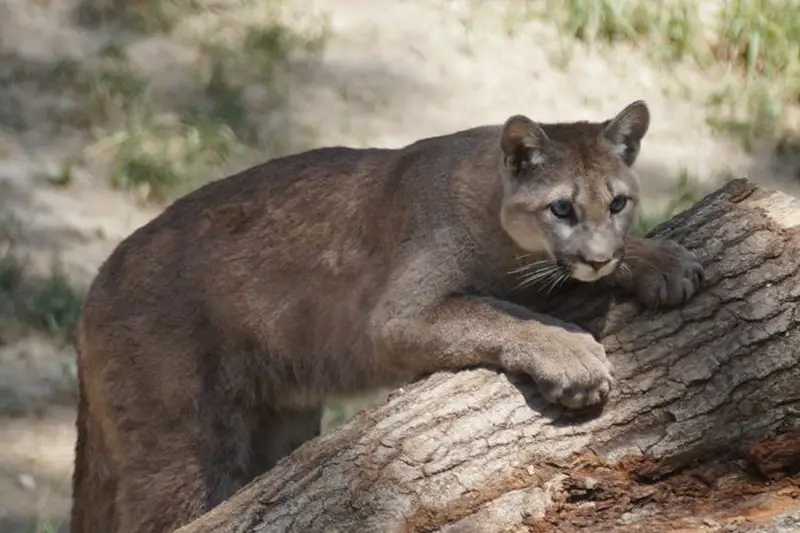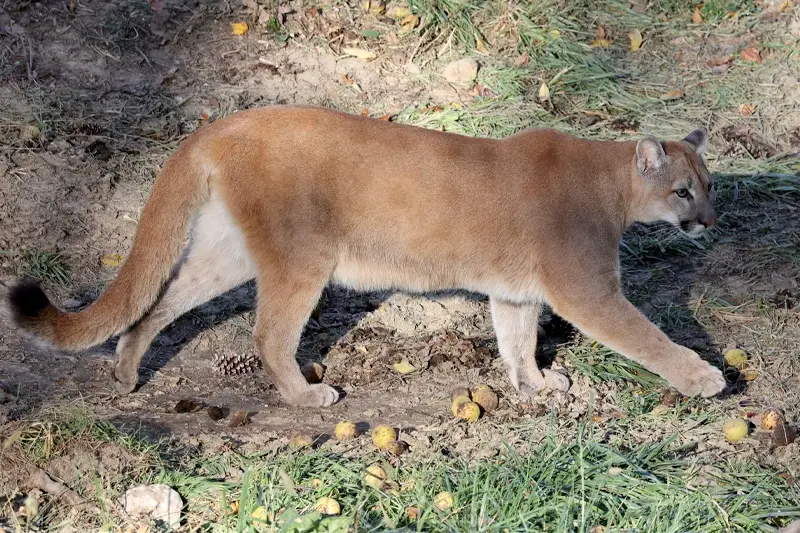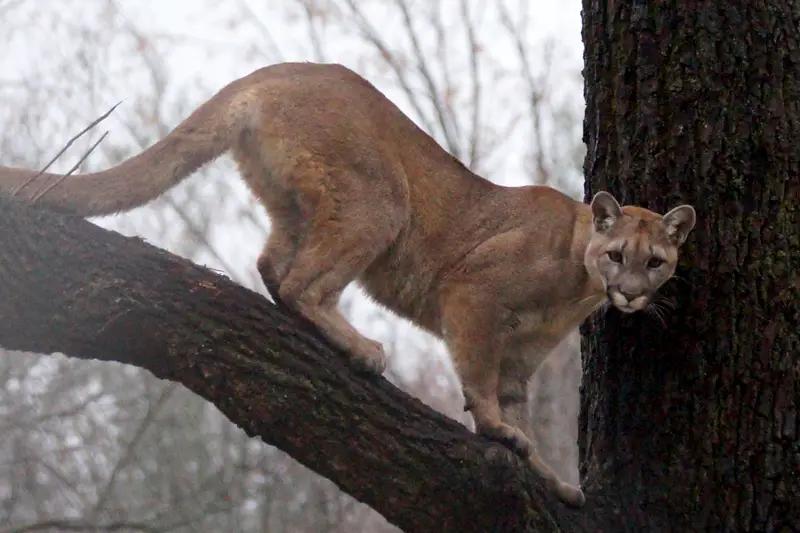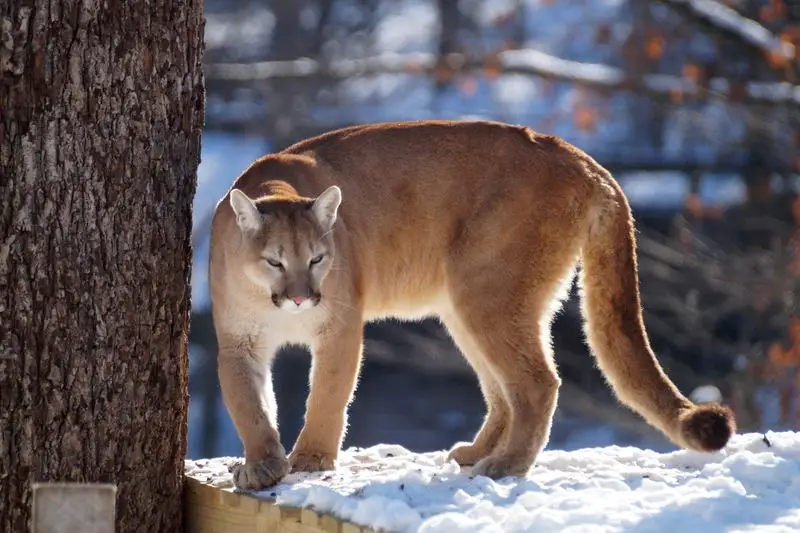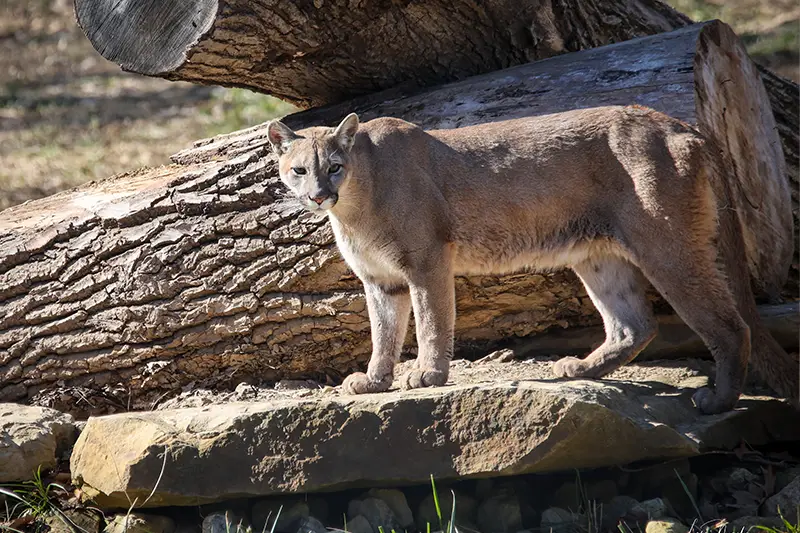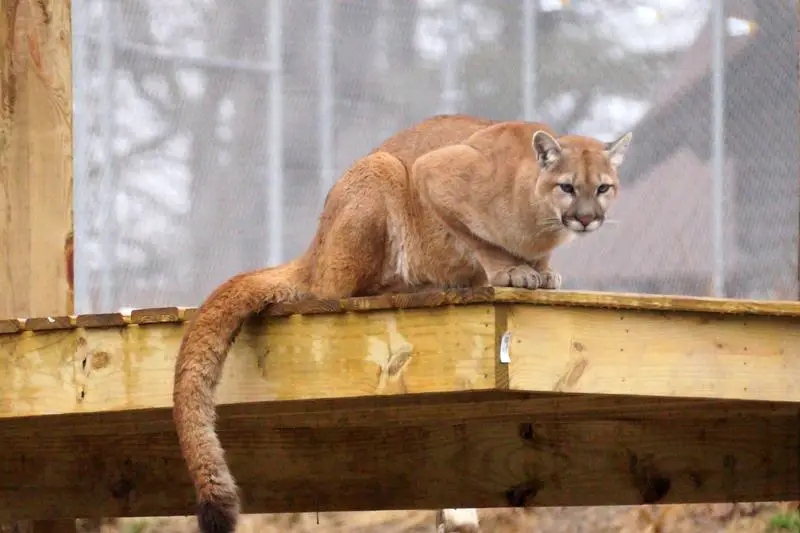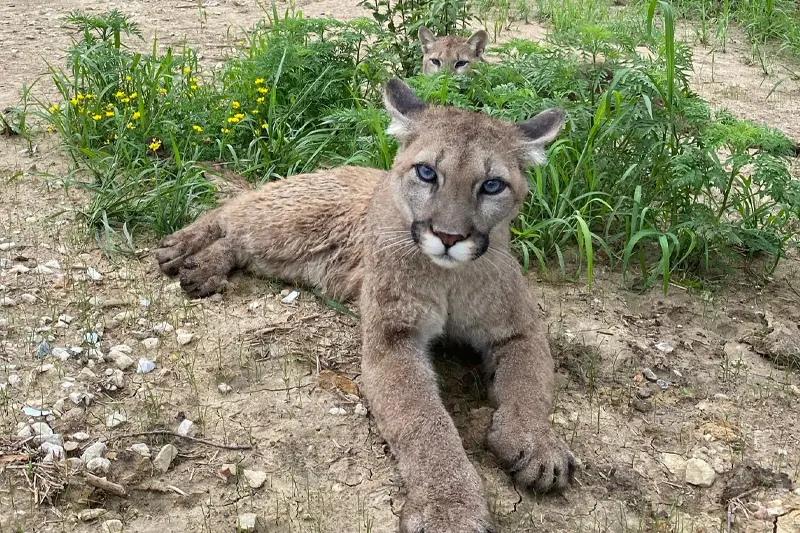Class: Mammalia Order: Carnivora Family: Felidae Genus: Puma Species: concolor
Puma Concolor is known by more names than any other mammal in the world – cougar, mountain lion, puma, panther, ghost cat, and catamount to name a few. Cougars are the fourth largest cat in the world, after lions, tigers and jaguars and the second largest member of the cat family in North America.
Cougars are essential in a healthy ecosystem. These necessary predators help in many ways including regulating prey animal populations. By preventing the prey animal populations from becoming too large, cougars help prevent over grazing and crop predation, therefore increasing biodiversity and protecting farmland.
Cougars have no natural enemies (other than man), however they do compete with wolves and bears for food. As humans expand into cougar territory, encounters with cougars have increased. Cougars would much rather remain hidden than be confronted in the open, so avoidance is a primary strategy. You can do your part in avoiding cougars by not hiking at dusk and dawn when they hunt, make noise as you hike, and don’t leave food out when camping.
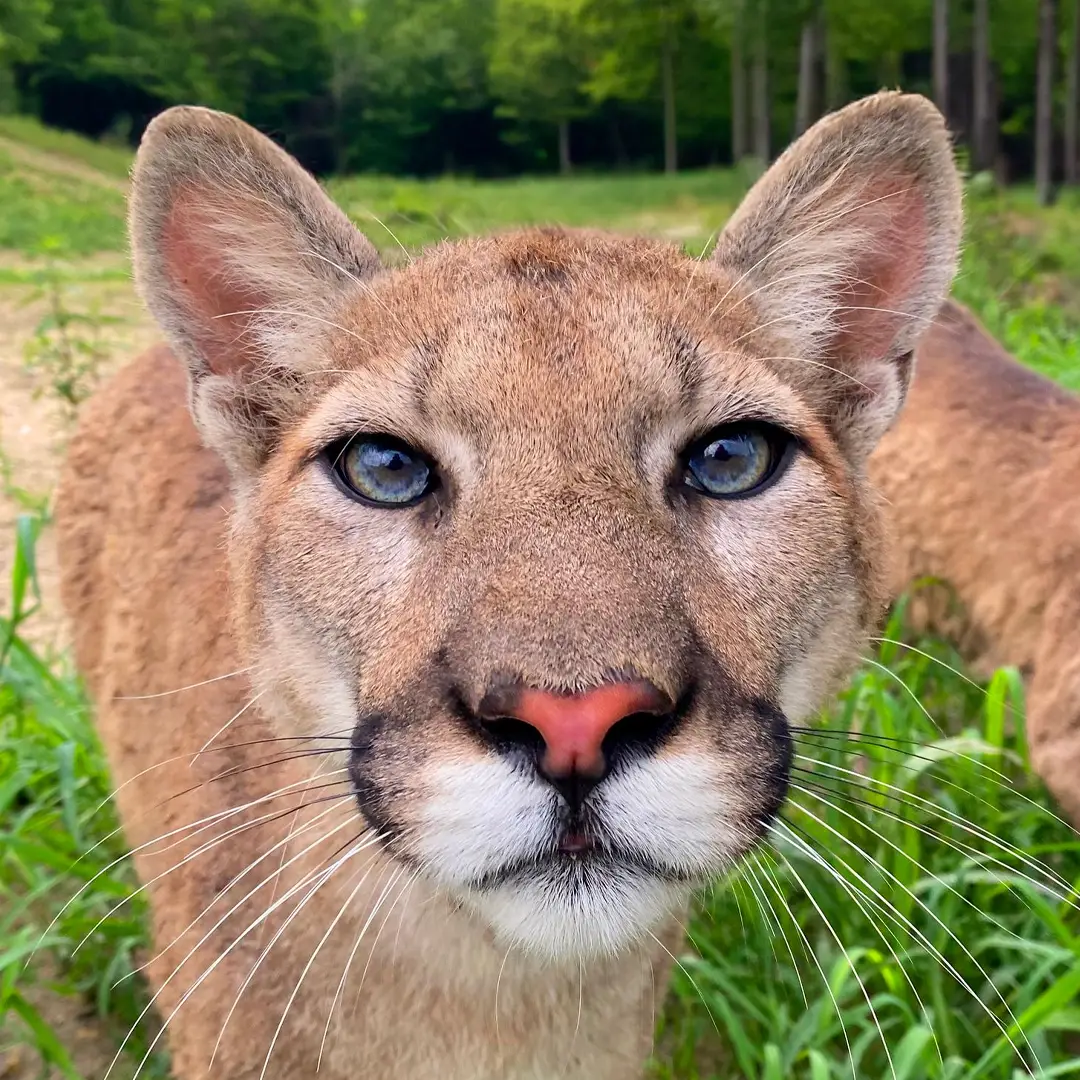

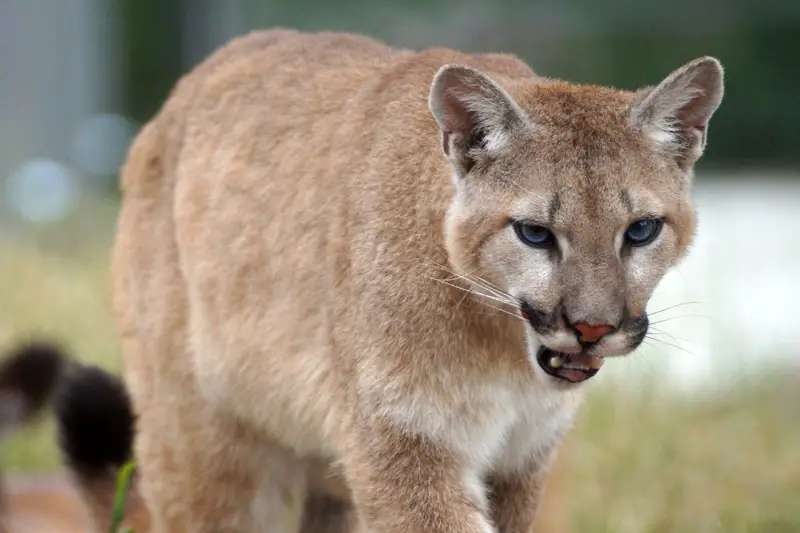
L.J. is the smallest cougar with striking blue eyes and is the most tan color compared to her sisters. She is also the most attentive, is very vocal and will come to see the animal keepers when they enter the den.
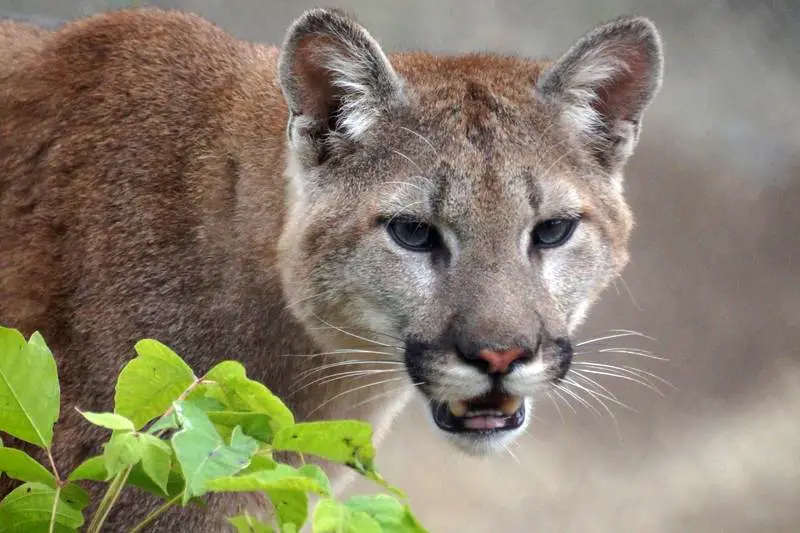
Quita is the biggest in size with gray green eyes and is a little darker in color than sister, L.J. She is very curious and playful and just like L.J., she is quite vocal and will come to see the animal keepers when they enter the den.
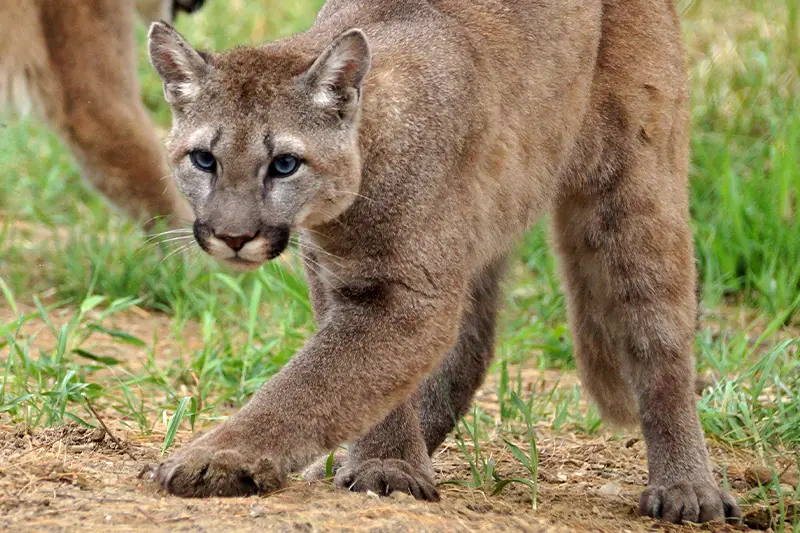
Shadow is larger than L.J., but smaller than Quita with blue/gray/green eyes and is the darkest in color. She is also the most aloof and timid, but will also quickly enter the den when the animal keepers feed the sisters.
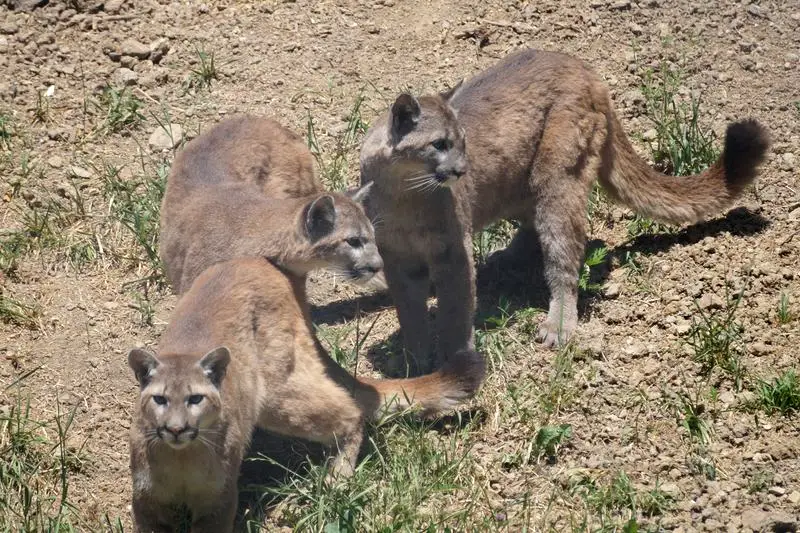
Cougars are native to North America and primarily live in forest and mountain regions, but can also survive in prairie, swamp, and desert habitats. They have the widest range of any land mammal in the Western Hemisphere, besides humans, ranging from western Canada to Argentina.
In the 1800s, settlers hunted cougars without restraint and nearly wiped out the entire midwestern population. Cougars no longer live in Illinois, but healthy populations still reside in the western regions of the U.S. and in some areas of the east. Since 2000, there have been occasional reports of cougars sighted in Illinois. Before this, there had been no sightings in Illinois for more than 100 years.
Cougars are carnivores. Wild cougars feed on deer and other large herbivores as well as smaller mammals. They are capable of taking down prey two to three times their size and some will even consume porcupines and the quills, apparently without any harm to the cougar. In captivity, they enjoy a feline carnivore diet and deer meat.
Help Feed Our Cougars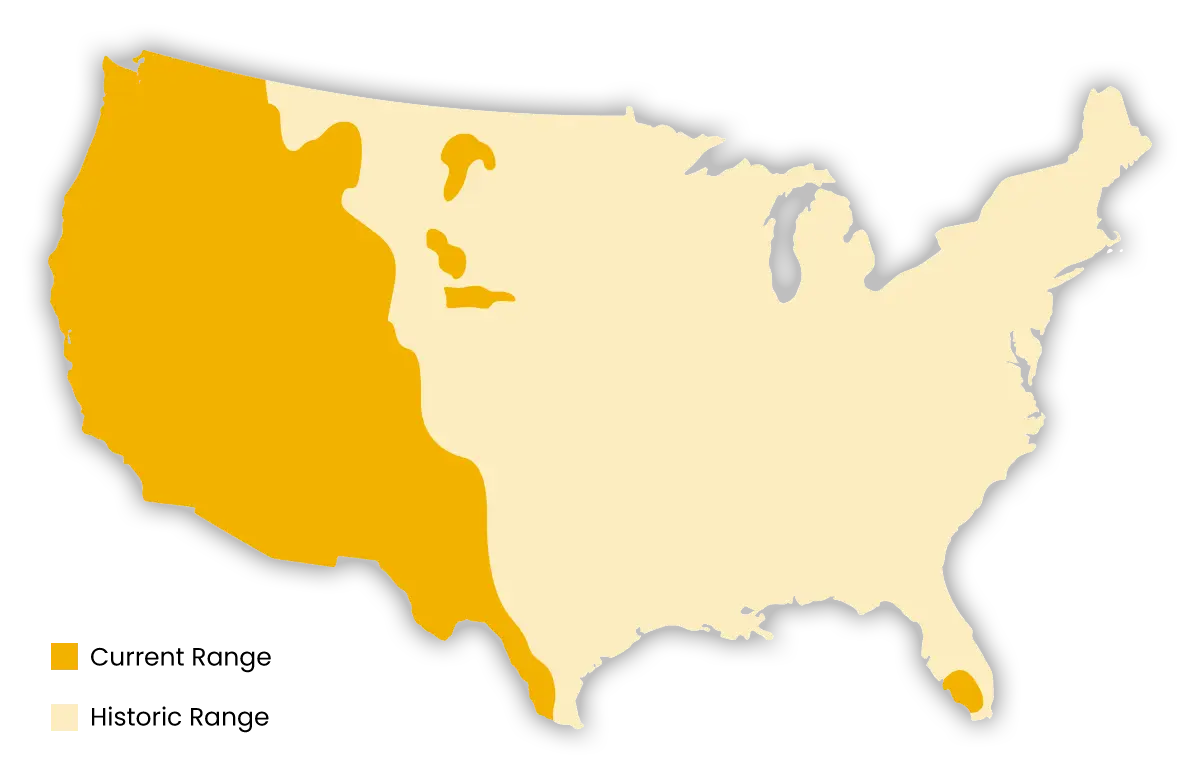
A cougar’s eyesight is its most important sense, as befits an animal that secures most of its prey by stalking. With large eyes and more rod cells than cone cells, they have excellent night vision to see prey in low light. Other adaptations for this solitary predator includes extremely sensitive hearing, weak sense of smell, and a powerful bite.
Cougar mothers communicate with their kittens with a series of mews and grunts, and communicate with other cougars by growling, hissing, purring, and yowling. Cougars do not have a large voice box and cannot roar like lions and tigers.
Cougars lead solitary lives, except when a mother has kittens. Cougar kittens are born in late summer/early fall and weigh around 6 ounces at birth. These spotted kittens are usually born in a secluded cave or rock overhang and are virtually undetectable by predators. By 6 weeks old, the kittens begin to feed on meat, and they start learning to hunt by the time they are 6 months old. The kittens stay with their mother for at least a year before venturing out on their own. Cougar males do not play a role in raising offspring.
Cougars are very agile for their large size, and are amazingly quick. They have poor endurance, however, and can only sprint a few hundred yards before becoming winded. A cougar will stalk its prey for a very short time before pouncing on it, giving prey very little time to escape. Cougars also have incredible leaping abilities – an adult can leap up to 40 feet out in all directions, and almost 20 feet straight up, making mountain travel very easy.
